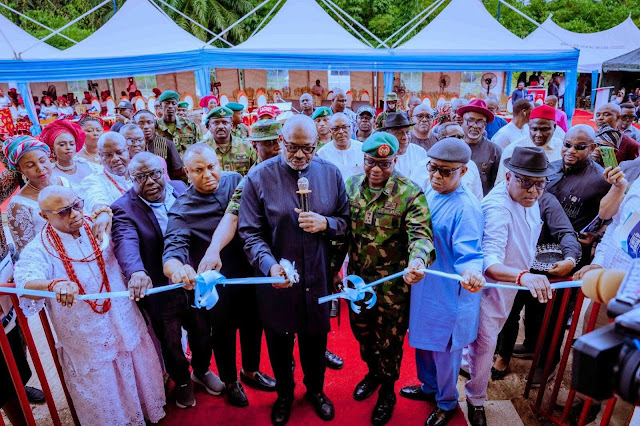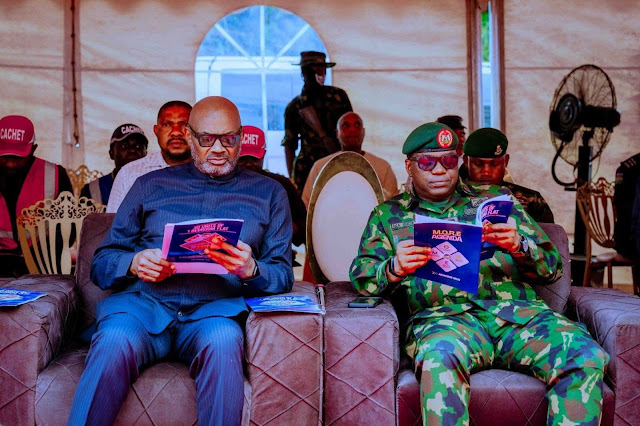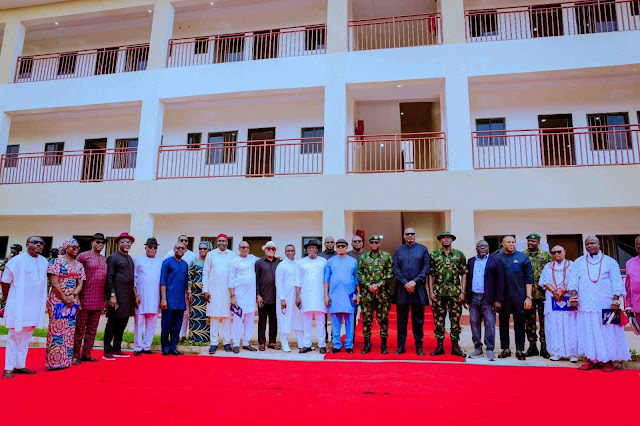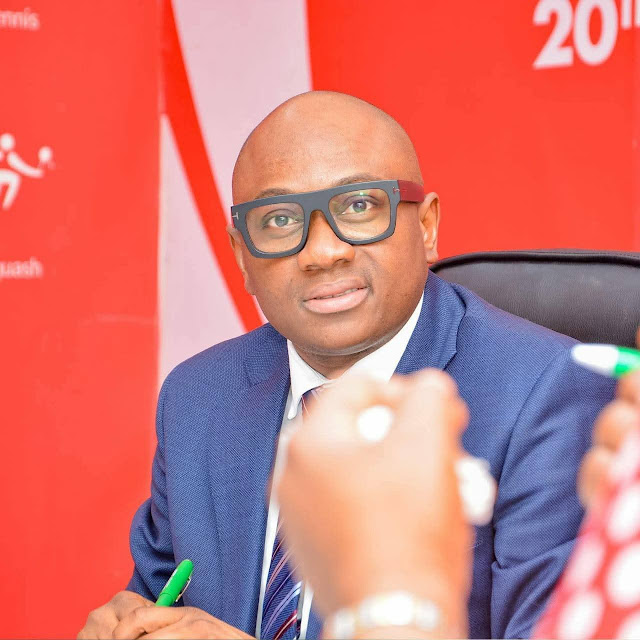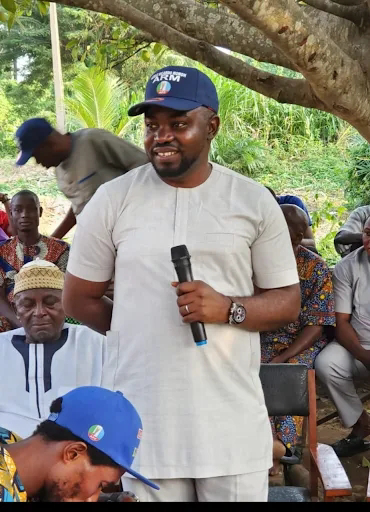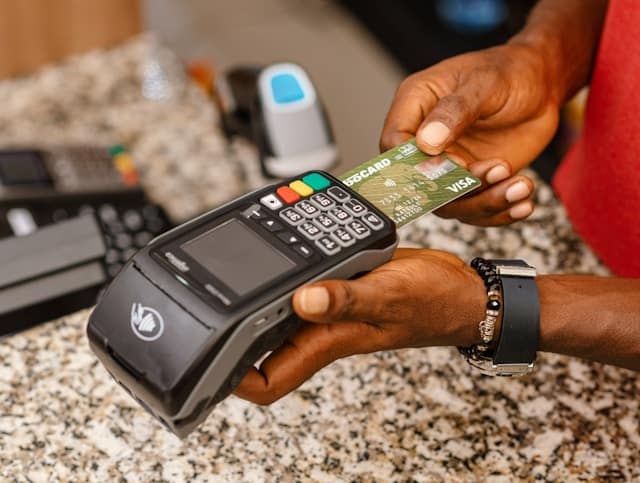On Tuesday, Delta State Governor Sheriff Oborevwori inaugurated 30 units of one-bedroom flats for officers and soldiers of the 181 Amphibious Battalion in Agbor, Ika South Local Government Area, marking a significant milestone in his administration’s efforts to enhance the welfare of security personnel. Represented by the Secretary to the State Government (SSG), Dr. Kingsley Emu, the governor underscored the importance of the housing project as a cornerstone of his administration’s commitment to improving the living conditions of soldiers and strengthening the state’s security architecture. The initiative, aligned with the Meaningful Development and Enhanced Peace and Security pillars of the governor’s M.O.R.E Agenda, reflects a broader vision of fostering peace, development, and prosperity in Delta State. The event, attended by top military officers, government officials, and community leaders, highlighted the collaborative efforts between the state government, the Nigerian Army, and local stakeholders to create a safer and more prosperous Delta.
A Commitment to Soldiers’ Welfare
The inauguration of the 30 one-bedroom flats represents more than just the construction of new buildings; it is a tangible expression of Governor Oborevwori’s dedication to the welfare of security personnel who risk their lives to protect the state’s residents. Speaking through Dr. Emu, the governor emphasized that providing decent accommodation for soldiers is not merely a matter of improving their living conditions but also a strategic investment in boosting their morale and enhancing their effectiveness. “The 30 units of one-bedroom flats we are commissioning today symbolize our determination to improve the living conditions of the men and women who daily put their lives on the line for our safety,” he said. “Decent accommodation for our soldiers is not only about welfare; it is about boosting morale and enabling them to discharge their duties with even greater dedication.”
The housing project addresses a critical need for the officers and soldiers of the 181 Amphibious Battalion, who play a vital role in maintaining peace and security in Delta State. By providing comfortable and dignified living spaces, the state government is acknowledging the sacrifices made by these personnel, who often operate in challenging and high-risk environments. Improved living conditions are expected to enhance their well-being, reduce stress, and enable them to focus on their duties, ultimately contributing to a more secure and stable Delta State.
Aligning with the M.O.R.E Agenda
Governor Oborevwori’s administration has been guided by the M.O.R.E Agenda, an acronym for Meaningful Development, Opportunities for All, Realistic Reforms, and Enhanced Peace and Security. The housing project aligns directly with two key pillars of this agenda: Meaningful Development and Enhanced Peace and Security. By investing in infrastructure that supports security personnel, the administration is creating a foundation for sustainable development and social stability. The governor noted that “development and security must go hand in hand,” highlighting the interconnectedness of these priorities in achieving long-term prosperity for Delta State.
The Meaningful Development pillar emphasizes the creation of infrastructure and services that improve the quality of life for all residents. The housing units for the 181 Amphibious Battalion are a prime example of this commitment, as they address the specific needs of a critical segment of the population—security personnel—while contributing to the broader goal of fostering a safe and conducive environment for economic growth. The Enhanced Peace and Security pillar, meanwhile, underscores the administration’s focus on strengthening the state’s security architecture to combat threats such as oil theft, vandalism, and other forms of criminality that have plagued the Niger Delta region.
Collaborative Efforts and Historical Context
The housing project was made possible through a collaborative effort between the Delta State Government, the Nigerian Army, and other stakeholders. The contract for the construction of the 30 one-bedroom flats was awarded in March 2023, and its completion within a relatively short timeframe reflects the administration’s efficiency and commitment to delivering on its promises. Mr. Godknows Angele, the State Commissioner for Housing, lauded Governor Oborevwori for his leadership in seeing the project through to completion. “This is a bold step in supporting the Army and strengthening security in the state,” Angele said, emphasizing the strategic importance of the initiative.
The project also owes its origins to the contributions of General Lucky Irabor, the former Chief of Defence Staff, who played a pivotal role in attracting the 181 Amphibious Battalion to Delta State. Governor Oborevwori, through Dr. Emu, commended General Irabor for his efforts, noting that the establishment of the battalion has significantly enhanced security in the region. The governor also expressed gratitude to President Bola Tinubu’s administration for its renewed commitment to tackling security challenges nationwide, highlighting the importance of federal-state partnerships in addressing complex issues like oil theft and criminality.
The 181 Amphibious Battalion, based in Agbor, has been instrumental in combating illegal activities in Delta State, particularly in the oil-rich Niger Delta region. The battalion’s efforts have helped to curb oil bunkering, pipeline vandalism, and other threats to the state’s economic and social stability. By providing housing for the battalion’s officers and soldiers, the state government is reinforcing its support for these critical operations, ensuring that the military has the resources and infrastructure needed to carry out its mandate effectively.
Community Impact and Local Support
The inauguration of the housing units was met with widespread approval from local leaders and community members in Agbor. Mr. Jerry Ehiwarior, Chairman of the Ika South Local Government Council, praised Governor Oborevwori for approving the project, noting that the presence of the 181 Amphibious Battalion has significantly improved the security of lives and property in the area. The enhanced security has created a more stable environment for residents, businesses, and investors, contributing to the economic development of Ika South and the broader Delta State.
Chief Boniface Ebite, representing the Dein of Agbor, expressed the community’s pride in the governor’s achievements. He highlighted the strategic importance of Agbor, a key town in Delta State known for its commercial and cultural significance. “The people of Agbor are proud of the governor’s achievements,” Chief Ebite said, adding that the housing project is particularly significant given the town’s role as a hub in the region. He assured the governor of the continued support of the Agbor community, emphasizing the importance of collaborative governance in achieving sustainable development.
The presence of the 181 Amphibious Battalion in Agbor has had a transformative impact on the local community. The battalion’s operations have not only reduced criminal activities but also fostered a sense of safety and stability, enabling residents to go about their daily lives with greater confidence. The housing project is expected to further strengthen the relationship between the military and the community, as it demonstrates the state government’s commitment to supporting the soldiers who serve in the area.
Enhancing Military Welfare and Morale
Lt. Col. Bukar Dabo, the Commanding Officer of the 181 Amphibious Battalion, expressed gratitude to the Delta State Government for its intervention. He noted that the housing units would significantly enhance the welfare of officers and soldiers, providing them with a comfortable and dignified living environment. “The housing units will go a long way in enhancing the welfare of officers and sustaining peace in the area,” he said, underscoring the link between improved living conditions and operational effectiveness.
Military personnel often face challenging living conditions, particularly in remote or high-risk areas like the Niger Delta. By providing modern, well-equipped housing, the Delta State Government is addressing a critical need and demonstrating its appreciation for the sacrifices made by soldiers. The one-bedroom flats are designed to offer a level of comfort and privacy that can boost morale, reduce stress, and enable soldiers to perform their duties with greater focus and dedication.
The project also has broader implications for military recruitment and retention. By improving the welfare of soldiers, the state government is sending a message that it values their contributions and is committed to supporting them. This could encourage more young people to consider careers in the military, knowing that their well-being will be prioritized. Additionally, better living conditions can reduce turnover rates, ensuring that the 181 Amphibious Battalion retains experienced and skilled personnel.
A Model for State-Military Collaboration
The housing project serves as a model for state-military collaboration, demonstrating how state governments can partner with the armed forces to address shared challenges. The Niger Delta region, with its history of militancy, oil theft, and environmental degradation, requires a coordinated approach to security and development. By investing in the welfare of soldiers, the Delta State Government is strengthening the capacity of the Nigerian Army to address these challenges, thereby creating a safer and more prosperous region.
The project also highlights the importance of infrastructure in achieving security objectives. While military operations are critical for combating crime, they must be supported by investments in housing, training facilities, and other resources that enable soldiers to perform effectively. The Delta State Government’s decision to prioritize housing for the 181 Amphibious Battalion reflects a strategic understanding of this dynamic, positioning the state as a leader in fostering security through infrastructure development.
Aligning with Broader Development Goals
The housing project aligns with both state and national development goals, particularly those related to security, welfare, and sustainable development. At the state level, the project is a key component of the M.O.R.E Agenda, which seeks to create a Delta State where development and security are mutually reinforcing. By improving the living conditions of soldiers, the administration is enhancing the state’s security architecture, which in turn creates a conducive environment for economic growth, investment, and social progress.
Nationally, the project supports President Tinubu’s renewed focus on tackling security challenges, as acknowledged by Governor Oborevwori. The federal government has prioritized initiatives to combat oil theft, insurgency, and other threats, and state-level interventions like the housing project complement these efforts. By working together, federal and state governments can create a more cohesive and effective approach to security, ensuring that resources are allocated efficiently and that the needs of security personnel are met.
The project also contributes to the United Nations Sustainable Development Goals (SDGs), particularly SDG 16 (Peace, Justice, and Strong Institutions). By strengthening the welfare of security personnel, the Delta State Government is promoting peace and stability, which are essential for sustainable development. The initiative also aligns with SDG 11 (Sustainable Cities and Communities) by improving housing infrastructure and supporting community development in Agbor.
Challenges and Opportunities
While the inauguration of the housing units is a significant achievement, several challenges must be addressed to ensure the long-term success of such initiatives. One key challenge is the need for sustained funding and maintenance of the housing units. Infrastructure projects require ongoing investment to ensure that facilities remain functional and meet the needs of their occupants. The Delta State Government must allocate resources for regular maintenance and upgrades to prevent the deterioration of the housing units over time.
Another challenge is the broader security context in the Niger Delta, where issues like oil theft and militancy continue to pose threats. While the presence of the 181 Amphibious Battalion has improved security, sustained efforts are needed to address the root causes of these issues, including unemployment, poverty, and environmental degradation. The state government can build on the success of the housing project by investing in complementary initiatives, such as job creation programs and environmental restoration, to create a more holistic approach to development and security.
Despite these challenges, the opportunities are immense. The housing project positions Delta State as a leader in supporting the welfare of security personnel, setting an example for other states to follow. By continuing to invest in infrastructure, the state can attract further support from the federal government, international partners, and private investors. The project also strengthens the relationship between the state government, the military, and local communities, fostering a sense of shared purpose and collaboration.
Community Engagement and Future Prospects
The involvement of local leaders and community representatives in the inauguration ceremony underscores the importance of community engagement in governance. The support of figures like the Dein of Agbor and the Chairman of Ika South Local Government Council highlights the strong partnership between the state government and local stakeholders. This collaboration is critical for ensuring that development projects are aligned with the needs and aspirations of communities, thereby maximizing their impact.
Looking ahead, the Delta State Government has an opportunity to build on the success of the housing project by expanding similar initiatives to other parts of the state. Additional investments in military infrastructure, such as training facilities and medical centers, could further enhance the welfare of security personnel and strengthen the state’s security architecture. The administration can also explore partnerships with private developers to create affordable housing for civilians, addressing the broader housing deficit in Delta State.
Conclusion
The inauguration of 30 one-bedroom flats for the 181 Amphibious Battalion by Governor Sheriff Oborevwori represents a significant step toward improving the welfare of security personnel and strengthening Delta State’s security framework. Aligned with the M.O.R.E Agenda, the project underscores the interconnectedness of development and security, demonstrating that investments in infrastructure can have far-reaching benefits for both soldiers and civilians. By providing decent accommodation, the state government is boosting the morale of soldiers, enhancing their effectiveness, and creating a safer environment for residents.
The collaborative efforts of the Delta State Government, the Nigerian Army, and local communities, combined with the leadership of Governor Oborevwori, have made this project a success. The initiative serves as a model for state-military collaboration, highlighting the importance of strategic investments in achieving peace and development. As Delta State continues to navigate the challenges of the Niger Delta, the housing project stands as a testament to the power of visionary leadership and collective action in building a brighter and more secure future for all.


